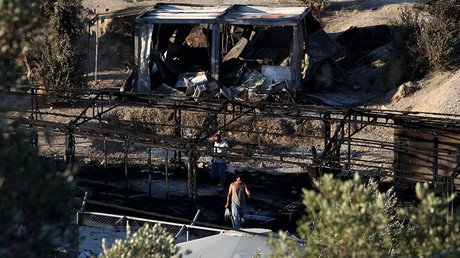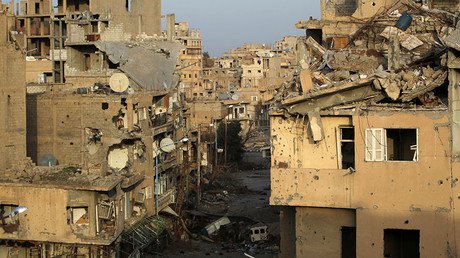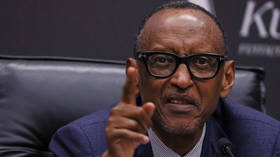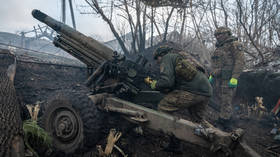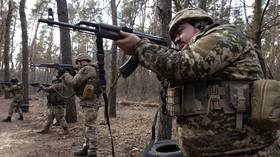Millions of Western dollars meant to save ‘lost generation’ of Syrians vanished – HRW
Millions of dollars pledged by the international community to pay for the education of Syrian refugee children has gone missing, according to an investigation by Human Rights Watch (HRW).
In 2016, a conference in London attended by German Chancellor Angela Merkel, as well as David Cameron and John Kerry, then-UK prime minister and US secretary of state, respectively, pledged $1.4 billion to help over 1.5 million displaced Syrian children go to school to prevent the emergence of a “lost generation.” The six largest donors were the European Union, the US, Germany, the United Kingdom, Norway, and Japan, and the money was due to go to Turkey, Jordan, and Lebanon – the three countries hosting the most Syrian refugees.
The HRW investigation found “large discrepancies” between the money that was pledged and what was actually received by the host countries.
“Donors and host countries have promised that Syrian children will not become a lost generation, but this is exactly what is happening,” said the report’s author, Simon Rau. “More transparency in funding would help reveal the needs that aren’t being met so they could be addressed and get children into school.”
According to HRW, most of the money that was supposed to be used to buy books, hire teachers, and plan curriculums only reached the hosting countries after the school year started, which was too late for it to enroll many of the children. By early September 2016, Jordan faced a $171mn shortfall and Lebanon $181mn. Although the funds slowly trickled in, Jordan still had a $41mn budget gap by the end of the year, and Lebanon $97mn.
Meanwhile, the UN agencies working with Syrian refugees in Turkey only received $111mn out of the $137mn they requested in 2016.
“Despite global concern about Syrian refugee children, it is still impossible to find answers to basic questions about whether their key educational needs are being met,” said Rau. “Donors should fix the transparency deficit that is undercutting their own support for Syrian children, who cannot afford to wait any longer to get back into school.”
Explanations of where the money had gone varied from country to country. Only the UK and Germany published transparent reports of what they had done with the money. The US Agency for International Development (USAID) said not all of the money it pledged had gone towards schooling, but all of it had been accounted for.
“Clarity about aid can help pinpoint the reasons why, despite donor support, hundreds of thousands of Syrian children still lack access to education,” the report said.
Other problems identified by HRW include poorly-trained teachers, harassment and discrimination at school, and widespread poverty, which makes classes unaffordable and puts pressure on boys to work and girls to marry. As of the 2016-2017 school year, over 530,000 Syrian children have not been able to attend classes.
Russia has been providing humanitarian aid on the ground directly to affected areas in Syria. Earlier in September, the Russian Center for Reconciliation of Opposing Sides in Syria sent food aid and living essentials, including water purification stations, portable diesel generators, medicine, and bottled water, to the besieged city of Deir ez-Zor after it was liberated from Islamic State (IS, formerly ISIS/ISIL) in a joint operation with Syrian forces.
